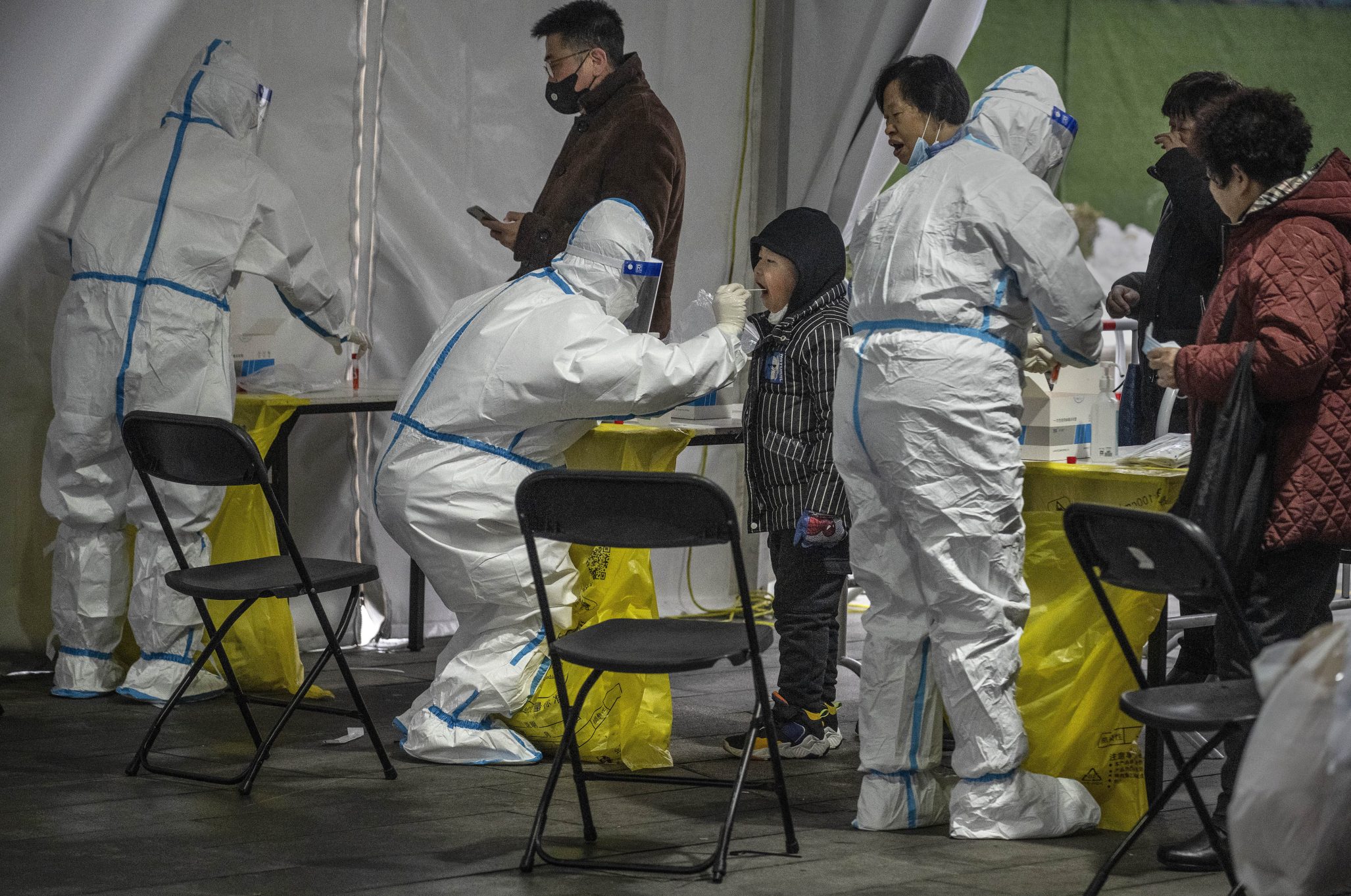Here is an incredible sentence:
And if millions need care—even if they don’t need to be hospitalized—the hospitals will rapidly be overwhelmed.
That is from an op-ed this morning in The New York Times, by doctors Ezekiel J. Emanuel and Michael T. Osterholm, warning that China's fabulously successful measures for limiting COVID-19 infections and deaths—"Even with about four times the population of the United States, China has had fewer than 140,000 confirmed Covid cases and fewer than 6,000 deaths since January 2020," the doctors write—have actually been a grave mistake, as preventing the disease from running rampant through the nation's populace has left China woefully vulnerable to the next pandemic.
Overwhelmed hospitals! That would surely be a horrible thing to happen, which the doctors assure us it might, in the future, at some point, in China, due to all of its damnable success at keeping its citizens uninfected and alive, which has left it perilously unhardened against the rigors of hypothetical future pandemics! Whereas here in the United States, where the actual ongoing COVID-19 pandemic has killed 870,000 people and continues sickening more than half a million people per day, we do not have to worry about anything as horrible as hospitals being overwhelmed by millions of people needing care during a pandemic. Whew.
"As recent episodes in the city of Xi’an showed," the doctors write, "Chinese hospitals fearful of the virus may deny care to those in need." A nightmare. I know it is a nightmare because overwhelmed hospitals have been turning away those in need across the United States for two years—maybe you noticed—as they were forced to dedicate every available bed, staffer, and resource to COVID care and still didn't have nearly enough, as nurses and doctors have been burning out and leaving the medical field in terrifying numbers. It is awful to learn that something like that may happen in China, eventually. Those poor safe and alive people, doomed to live and continue living under such foolishness! How sad for the 864,000 extra of them who could be peacefully dead today if only their country's leaders had the wisdom to ditch their disastrous "zero COVID policy" for America's sensible "no COVID policy at all" approach.
Here is another sentence:
Over the next few years, most people in the world, including China, are likely to be exposed to the coronavirus.
I do not doubt that this is true. It is weird to me that the doctors feel no need to note that this needn't have been the case, had rich and powerful western societies like the United States not spent the entire pandemic blasting away at their own crotches with machine guns rather than following the lead of countries that succeeded at cutting off the disease's vectors through their populace. I suppose there's no point in dredging up the past. Let's just be glad that those of us in America who don't die or lose our livelihoods or loved ones or lung function—who don't get long COVID and aren't bankrupted by hospital bills, who haven't had our sense of security and freedom moving about in the world permanently mangled by a two-year everyday reminder that in this broken and blasted ruin of a society you're only as safe as the seal on whatever you wear over your face to protect yourself from the neighbors who'd rather kill you than get a free shot in the arm—are set up nicely to thrive in the next pandemic. Minus all the dead, of course, but sometimes one simply must make an omelet.
In September of 2019, three lifetimes ago when I'd never heard of coronavirus, I wrote that the gradual redefinition of sports, from thrilling physical games that athletes play for spectacle and entertainment to a bloodless contesting of business plans between M.B.A types in suits, represented "the dystopian endpoint of Processism," and more broadly of the forces at work in the analytics revolution in sports. A point was coming, I wrote, at which what actually happens in the physical world of sports would come to be regarded as at best a noisy, distracting, and untrustworthy representation of a somehow realer and more meaningful clash between asset-maximization strategies. Here was institutional baseball shrinking itself on purpose, producing less of its product, as a strategy for squeezing its workforce and extracting more profits—and here were wised-up analysts arguing it should be celebrated for this, that baseball fans should celebrate it. That's pretty dystopian!
I wasn't wrong to write that the moment had arrived. I was wrong to call it an endpoint. Here we are, not even three years after that but two years into a global pandemic, and a pair of doctors are in The New York Times arguing China was foolish to protect its people from dying of a transmissible respiratory virus because it played itself out of a top pick in the next pandemic draft. Only clowns and fools want to live through pandemics, when they could lock down hypothetical future asset positioning by drowning on the fluid in their own lungs. Someday I will clench my jaw hard enough to form a small black hole between my teeth, and I will pass through it to a better universe.






